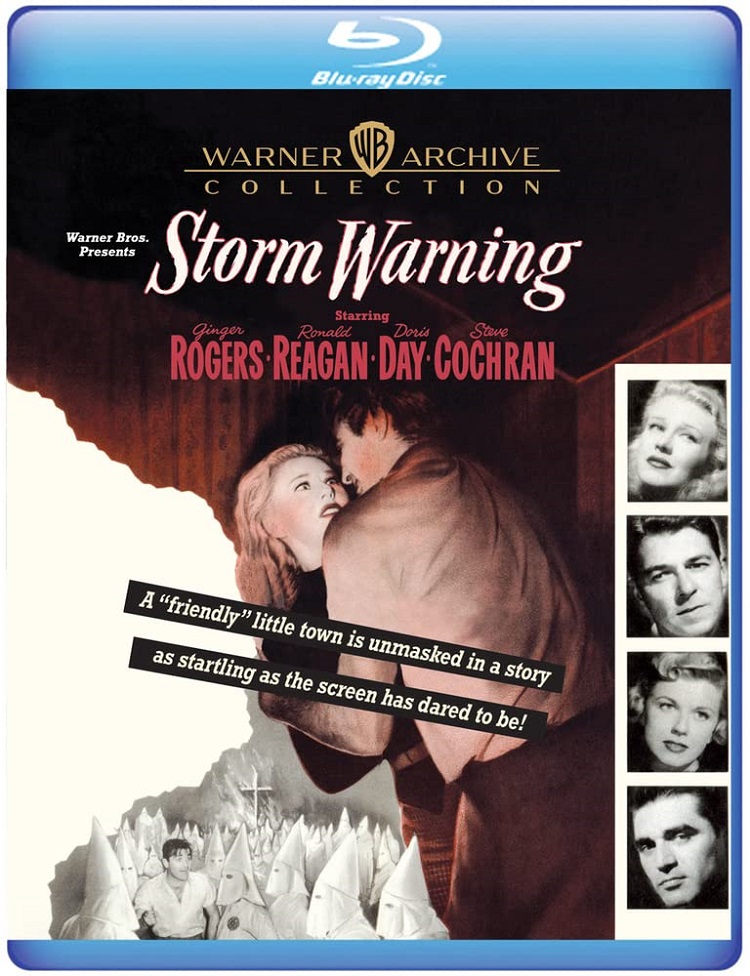
The 1950s may have seemed somewhat wholesome and Cleaveresque, but make no mistake, there were a lot of worms hidden underneath. “Worms” (which I’m referencing from 1986’s Blue Velvet) meaning dark, disturbing secrets and subject matter that people still refuse to talk about. There was the threat of nuclear annihilation, teenage rebellion, unwanted pregnancy, homosexuality treated as a disease, racism, and corruption. Storm Warming (1951) is a tough (for better or worse) expose of the Ku Klux Klan, although it’s much-watered down.
Ginger Rogers (in one of her best post-Astaire and Rogers vehicles) plays Marsha Mitchell, a traveling dress girl, who stops in a small southern town to visit her younger sister Lucy Rice (Doris Day in one of her serious roles). On arriving, she witnesses a lynching and murder of a journalist by the KKK, two of whom remove their hoods so she is able to see their faces. It gets worse when she discovers that one of them is Hank (Steve Cochran), who happens to be Lucy’s husband. At first, she decides to report him to District Attorney Burt Rainey (Ronald Reagan), but declines because she doesn’t want to ruin Lucy’s happiness. She then decides to leave but is convinced by Burt to testify as a witness. When she’s on the stand, she lies and changes her mind, and Hank is acquitted. After he tries to basically rape her, which Lucy witnesses, Marsha changes her mind again, but this time for good. However, this doesn’t lead to any positive outcomes for anyone involved.
This is definitely one of the more engrossing, solidly shot, bold films of the ’50s, but one that comes with setbacks. It sugarcoats what the KKK is really about and just treats them like a local crime syndicate. So, the villains look like they’re just wearing Halloween costumes. As bold as it is, the violence in it does get a little too much and takes it too far, especially when Rogers is being whipped in the film’s climax.
When it comes to the performances, there’s the matter of the Hank character, who is basically one-dimensional. He has no redeeming qualities whatsoever, but Cochran was good at playing sleazy characters, so I’ll give him that. Reagan does an okay job with his role, but he doesn’t emote as much as he should. He was much better in Kings Row (1942). I liked Day in this, but she was a little too naive, and unfortunately, Lucy is the character who ends up suffering the most. Obviously, Rogers is the savior of this. She is really, really good. She’s strong, defiant, and not easily rebuffed, especially when she needs to be. I just wish the script could have matched her powerful performance. With this and other films, she proved to be quite the dramatic actress, not just the song-and-dance dynamo she was known to be in the 1930s.
Overall, this film watchable despite its unevenness. Yes, censorship would have reared its ugly head, but the film could have depicted the KKK more realistically. It is perfect? No. Is it relevant? Unfortunately, yes.
Special features include theatrical trailer, classic short subject One Who Came Back, and classic cartoon short Bunny Hugged.